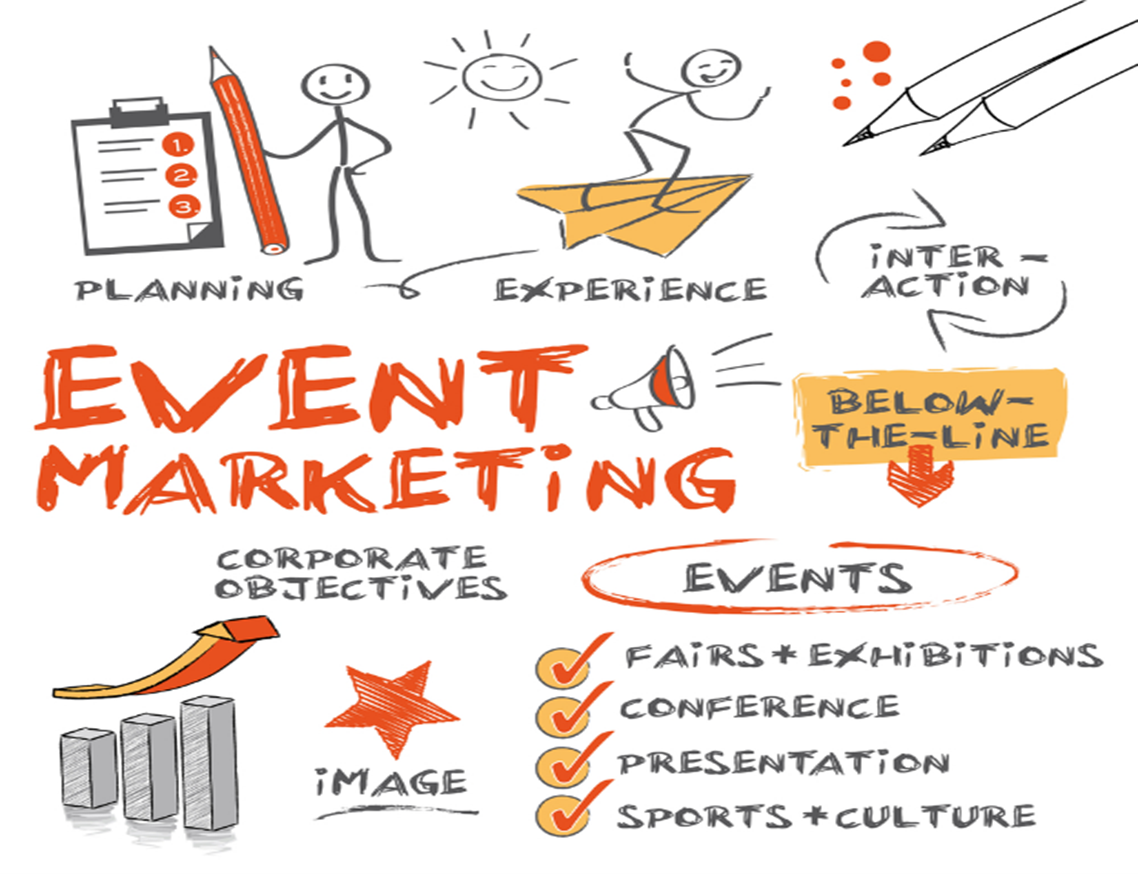
07 Dec TIPS FOR SUCCESSFUL EVENTS MARKETING
While it’s true that marketing events help strengthen your brand, how do you know that you are doing it right? Here are a few tips for successful event marketing.
For any event to be successful, well-planned marketing campaigns and a thought-out promotional plan are integral.
Be it a business conference, corporate event, trade show, or exhibition, you need some handy event marketing, planning tools and tips in your arsenal in the run-up before the big day!
-
Choose a Picture-worthy Venue
As an event planner, we want to choose a space that people want to not only be in but take and share pictures of. Social Times reported that 8,796 photos are shared every second. Attendees will be more inclined to post your event photos if they enjoy the event’s atmosphere. Be sure to encourage this: during the event post pictures of attendees and speakers to social channels like Snapchat, Twitter, and Instagram.
-
Search for Ideas, Not Speakers
All event planners before inviting speakers, do extensive research. TED Talks encourage that you look for ideas rather than speakers. The goal is to have the audience leave discussing its message with others, not about its messenger. Look for ideas that are relatable to your industry’s community, but aren’t cookie-cutter versions of talks heard elsewhere
-
Craft an Invite to People who Want to Open
People get loads of email invites and few of those are read entirely if at all opened. The biggest hurdle is getting them past the subject line. Mail Chimp suggests refraining from trying to sell what’s inside the email and instead telling what’s inside. Other factors from compelling design to clear and personable copy also help to drive attendance. Just don’t go overboard with creativity and forget to include components like the location, date, time, and a clear call-to-action (RSVP) button.
-
Watch for the Devil in the Details
It’s the tiny details that can reap the big rewards. Details are important and shape the outcome of any marketing event. When mistakes are made in the small details, you’ll find that they can render large-scale failures. For instance, speakers can run late which may result in some agenda shuffling. Stay composed. You’re going to need instant access to resources like slide decks and speaker profiles that can be edited on-the-fly.
-
Guide the Conversation
Any marketing event is bound to have a conversation taking place in some online social sphere. From Twitter to Instagram and everything in between, people are going to be talking in real time about your event. Creating a clever, memorable event hashtag can capitalize on the discussion. Make sure the hashtag is prominent both before and during the event by placing it on printed handouts like agendas, flyers, and brochures along with banners, posters, and on monitors between presentations.
-
Customize Sponsorship Materials
Sponsors give and they expect to be accommodated with added benefits beyond event advertising. You can take it a step further by customizing their sponsorship packages with branded merchandise. Supply them with take-home items like a branded backpack filled with goodies and a printed, personalized thank you.
-
Emails Don’t End After the Invite
You can never under-communicate event details. Remind attendees every week starting a month in advance and the day of the event.
After the event is finished, send out a thank you with a recap and a survey to collect feedback. Recording and documenting what is discussed at an event is a great practice you should put in place. You can repurpose the content into videos, blog posts, eBooks, and infographics for future posts.
-
Don’t Rely on RSVP Counts
Just because someone hits “Attend!” doesn’t necessarily mean that they’ll show up. In contrast, there will be last-minute and on-site sign-ups. Try to get an estimated final head count a week in advance, but leave room for a buffer. Preparation always goes to the last minute. When it comes to attendance uncertainties, with Mimeo you can order extra materials the day before for next-day delivery straight to the venue door.
The purpose of successful event marketing is to create a buzz around a company or a brand.

